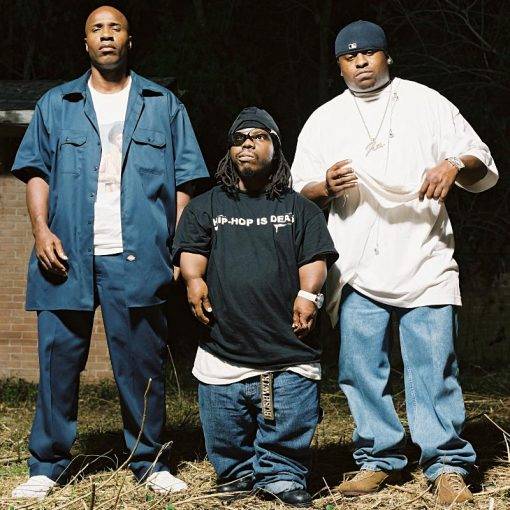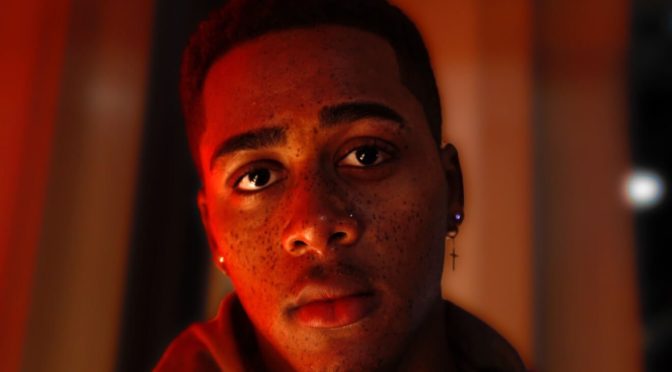Monthly Archives: November 2021
What is the Impact that One Black Educator Can Have On Black Elementary School Children
Never in a million years did I imagine that when my pen hit the pad this morning that a rhythmic saying from Jesse Jackson, an individual that I have always considered Black America’s Dr. Seuss, would emerge. By the time that you finish reading this posting, I hope that you will understand why Jesse Jackson’s rhyme of “If they can’t see it, then they can’t be it” appears on this page.
I am certain that you are puzzled about the catalyst behind my use of the words of Black America’s Dr. Seuss this morning. Well, I will tell you that Jesse Jackson’s words illuminate a recent Johns Hopkins University study. The information shared below is nothing new to Black folks.
Having at least one black teacher in third through fifth grades reduced a black student’s probability of dropping out of school by 29 percent, the study found. For very low-income black boys, the results are even greater – their chance of dropping out fell 39 percent.
As mentioned above, the correlation between Black teachers and Black student success is commonsensical. I would venture to guess that any Black educator can tell you that the most significant indicator of student success are not school facilities or classroom materials, the wisest among us understand that the most important factor in the education of Black children is the person standing in the front of the classroom. Simply put, if an educator believes that their students can learn, they will learn.
It is foolhardy in every way to argue against research displaying the phenomenal impact that a single Black educator has on the life of young Black males. In an era of hashtags, it is obvious that #BlackTeachersMatterMightilyToTheFutureOfBlackBoys.
As I have written in this space for several years, no one is coming to save Black folks. Hence, it is crucial that Black America begins creating reliable paths for the creation of Black teachers, particularly males, to work with our children during the formative elementary school years. Black America’s failure to strategize around information that contact with a single Black teacher for Black boys from low-income environments reduces their chances of dropping out by 39% is an unconscionable dereliction of duty. We must address this need in an uncommon manner that uplifts Black children and therefore our community in a significant manner.
Now, a discussion of an acceptable curriculum is a discussion for another day.
James Thomas Jones III, Ph.D.
©Manhood, Race, and Culture, 2021
What The Fall of Damon Arnette Tells Us About Flawed Black Manhood Constructs
NFL pundits forecasted the Las Vegas Raiders release of second-year cornerback Damon Arnette in the wake of a controversial social media tirade before he arrived on a professional football team. NFL scouts have come forward and revealed that there were grave concerns about Arnette’s character. The Raider organization investigated and ultimately decided to select the uber-talented defensive back from The Ohio State University. Arnette’s character flaws were fully displayed in a video of him toting a gun and threatening to kill an unidentified adversary for an unspecified reason.
I am unsurprised by Damon Arnette’s behavior and illogical decision-making. Such evils have become standard operating practices for far too many Black men who mistakenly equate manhood with uncivilized behavior. Manhood constructs resting on undisciplined, unpredictable, and illogical principles guide this segment of Black males.
Arnette’s recorded explosion is a relatively standard fare for unanchored Black males. Those I speak of believe that manhood is an uncontrolled rage capable of destroying all it encounters at its best. Young Black men learn aberrant behavior from Black men broken by a hostile white society dedicated to blocking their success.
Unfortunately for the Las Vegas Raiders, no amount of oversight, a euphemism used by professional sports teams to babysit grown men, can change a person’s core beliefs and behaviors. Damon Arnette is the most recent example of this belief.
Let’s be clear on this matter: Damon Arnette was not born with a predisposition for guns and uncivilized behavior. They were socialized to adopt such things during traumatic childhoods. Much like Bigger Thomas, the protagonist in Richard Wright’s Native Son, a hostile society seemingly opposing the Black world forged Damon Arnette into a Negro brute. Although difficult to accept, not even a million-dollar windfall corrects a flawed moral compass like Arnette’s.
There is no more disturbing aspect of Damon Arnette’s fall than what it yet again proves about Black America’s continuing failure, or is it an inability to intercede decisively on behalf of young Black men. The main lesson of this sad saga has less to do with Damon Arnette and more to do with what happens to Black males reared within a disassembled Black American community incapable of providing a reliable path to success.
The above failure to create a worthy socialization process and steer young Black males away from a host of societal ills toward success is possibly Black America’s most impactful shortcoming. A failure that guarantees that we will see future Bigger Thomas’ and Damon Arnette’s in our midst sooner than later.
James Thomas Jones III, Ph.D.
©Manhood, Race, and Culture, 2021
My Mind Is Playing Tricks on Me: The Matter of Black Men and Depression
My life path has taught me many uncertainties. What is uncertainty? Well, I am glad that you asked. In this context, uncertainty is something with pros and cons that is up for a rational debate. Experience has also taught me that rare issues are beyond dispute; such matters fall in the category of “I know this for certain.” Unfortunately for Black men, one of the things that I know for sure is that the vast majority of us have tangled with a persistent enemy that will leave you broken, hopeless, and in many cases suicidal. What makes this enemy so dangerous is the fact that his ongoing attacks are ruthless and relentless.
This invisible opponent’s incredible power is attributable to his ability to use everything, including the few elements in Black male lives to execute further damage. Such attacks are invisible to outsiders.
Black men tend to suffer in dark echo chambers that prevent light entrance yet manage to magnify negative thoughts.
Of course, the enemy I speak of is depression. This dastardly disorder cares not about your socioeconomic status, age, sexual orientation, marital status. Well, you get the picture. Depression is the opportunist of all opportunists.
Predictably, I, like so many other Black men of my generation, did not understand my initial exposure to this chameleon.
Please let me explain.
In 1991, Geto Boys released the album We Can’t Be Stopped, the classic song My Mind Playing Tricks on Me was included in that musical compilation. There is no room to argue against the fact that Scarface, Willie D., and Bushwick Bill rhymed over a hypnotic tune. In hindsight, the music was so good that it caused most listeners to ignore the lyrical content. Maybe if My Mind Playing Tricks on Me were released Accapella, Black men would have understood that the song places a much-needed spotlight on depression and the myriad ways it plays tricks with one’s mind. Just consider the opening lyrics delivered by Scarface, the South Park Stalker.
… I sit alone in my four-cornered room
Staring at candles
… At night I can’t sleep, I toss and turn
Candle sticks in the dark, visions of bodies being burned
Four walls just staring at a nigga
I’m paranoid, sleeping with my finger on the trigger
My mother’s always stressing I ain’t living right
But I ain’t going out without a fight
See, everytime my eyes close
I start sweatin, and blood starts comin out my nose
… It’s somebody watchin’ the ak’
But I don’t know who it is, so I’m watchin my back
I can see him when I’m deep in the covers
When I awake I don’t see the motherfucker
He owns a black hat like I own
A black suit and a cane like my own
Some might say “take a chill, b”
But fuck that shit, there’s a nigga trying to kill me
… I’m pumping in the clip when the wind blows
Every twenty seconds got me peeping out my window
Investigating the joint for traps
Checking my telephone for taps
I’m staring at the woman on the corner
It’s fucked up when your mind is playing tricks on you

As with most things impacting Black males, African-American men receive more than their fair share of the bad and a small portion of the positive.
The following facts provided by an initiative called Brother, You’re on My Mind shows the consequence of this unfair arrangement. The initiative, a partnership between the National Institute of Minority Health and Health Disparities and the Omega Psi Phi Fraternity, Inc., reports the following realities.
- Adult African Americans are 20 percent more likely to report severe psychological distress than adult whites.
- Adult African Americans living in poverty are two to three times more likely to report severe psychological distress than those not living in poverty.
- Suicide is the third leading cause of death for African American males ages 15 to 24.
- African American men ages 20 to 24 have the highest suicide rate among African Americans of all ages, male and female.
- African American teenagers are more likely to attempt suicide than are white teenagers.
- Young African Americans are much less likely than White youth to have used a mental health service in the year during which they seriously thought about or attempted suicide.
After viewing the above facts, one cannot conclude anything else than Black America in general, and Black men of all ages are in crisis.
Unfortunately for Black men, the decades-old stigma associated with any engagement with a mental health professional problematizes an obvious solution. Black men will attempt to fight through these issues via an assortment of self-medication efforts that include, but are not limited to, numbing themselves with massive doses of alcohol, food, promiscuity, rage, and drugs. If things could not be any worse, Black men willing to receive professional help have limited choices. Only 2% of 41,000 American psychiatrists are Black.
No one is coming to save Black men from this mental health crisis or any other crisis. So, we must do a much better job of checking on each other, going the extra step, and accompanying or arranging for engagement with mental health professionals. We must attempt to save each other “by any means necessary.”
James Thomas Jones III, Ph.D.
©Manhood, Race, and Culture, 2021
Who is Pickmesha and Why are so Many Black Women Seeking to Marry Her?
We are inviting you to this week’s Manhood, Race, and Culture Interactive Zoom discussion over the rising argument surrounding Pickmesha and why she is so attractive to Black men.
MRCi discussions occur every Thursday @ 7:30 (EST) – 6:30 (CST). Click on the link below to join our intellectual community.
Join us as we discuss pressing matters facing and impacting Black Men and Black America.
Just in case you can not get the link to work, use the information to join the Zoom session.
Meeting ID: 353 334 8869
Passcode: 1YF4BG
